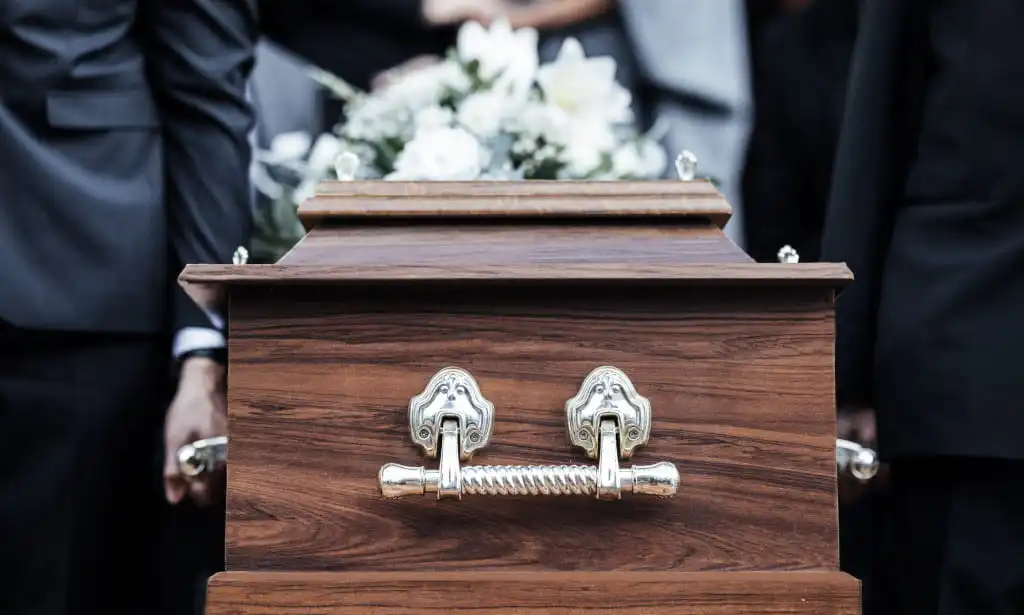The death of a loved one is tragic and takes an immense toll on a family, both emotionally and financially. This can be especially true when that person dies on the job, leaving dependent family in need of financial support. Workers’ compensation death benefits can help pay for funeral and burial expenses during this difficult time. They can also make up some lost income from deceased worker’s former job pay.
What Are Workers’ Compensation Death Benefits?
Workers’ compensation death benefits can help defray some costs when a person dies due to a work-related injury or illness. The employer’s insurance policy can also pay out when a deceased worker dies immediately in a work-related accident. Surviving spouses and other eligible dependents usually receive some money to cover transportation, burial, and funeral expenses. However, if there are no surviving dependents, workers’ comp death benefits can, in some instances, go to the decedent’s estate.
It’s important to understand that not every loved one’s death on the job will qualify for these benefits.
Financial support is only available to a deceased worker’s dependents if all of the following is true:
- An employee dies as a result of a workplace injury or occupational illness, and
- The deceased worker would meet all other requirements for workers’ compensation benefits had they survived, and
- The surviving family members relied on the deceased worker’s income for financial support.
State law determines who, specifically, can obtain compensation on the deceased employee’s behalf. But in most cases, a surviving spouse and dependent children younger than 18 living at home take priority.
Some states have additional requirements surviving dependents must meet in order to be eligible for workers’ compensation death benefits. For example, some states have laws that say dependent children must be born in wedlock to qualify. In others, spouses be legally married.
How Death Benefits Work for Federal Employees
While most people killed at work are subject to their state’s laws to determine death benefits, the same is not true for federal employees. The Department of Labor determines workers’ compensation death benefits for federal employees no matter where they work.
Federal employees are entitled to:
- $800 for funeral expenses
- $200 for administrative fees
- Lost wages paid in a lump-sum settlement amount based on the deceased worker’s time in service to the federal government
If an employee dies away from home, the charges for returning the body and a sealed casket can be added to the $800 allowance for funeral expenses.
The Federal Employee’s Compensation Act (FECA) determines all federal death benefits, including who must file the appropriate paperwork. To receive benefits, the surviving spouse or dependent children must file a claim within 30 days.

How Individual States Pay for Burial and Transportation Costs
Burial costs are included in death benefits and vary by state. Transportation costs provide an additional benefit that only applies if an employee dies away from home and their remains need to be transported back in order to be buried.
Each state has different limits for both burial and transportation costs. South Carolina’s limit is the lowest, as it allows only $2,500 for burial and funeral costs. New Jersey and Delaware offer only $3,500. These are the states on the lowest end of the spectrum, while Kentucky’s limit is a whopping $85,307. The average amount for burial and funeral costs in many states, however, is between $5,000 and $15,000.
What a Surviving Spouse or Other Dependents Should Know About Workers’ Comp Death Benefits
Survivors of the deceased employee are the beneficiaries of workers’ comp death benefits. Which survivors qualify depends on each family’s circumstances and local state laws on work-related death.
Most often, the deceased worker’s dependent children receive death benefits, as they were financially reliant on the decedent. Typically they can continue to receive death benefits until they turn 18, get married, or graduate from college. Which threshold applies to them depends on the state in which they live.
Spouses, too, can receive benefits in the form of Temporary Total Disability payments until one of these circumstances happen:
1. The surviving spouse remarries. In some states, this can also trigger a lump-sum settlement award equal to two years’ worth of lost wages.
2. The surviving spouse starts drawing Social Security retirement or pension payments, including early retirement at 62.
3. The surviving spouse passes away.
If an employee dies with no surviving dependents, non-dependent parents may qualify for workers’ comp death benefits in certain states. If the deceased employee has no eligible dependents, any payment may instead go to the decedent’s estate.
In most states, TTD death benefit payments equal two thirds of the deceased worker’s average weekly wage (AWW). Eligible dependents may receive death benefits either in weekly, biweekly, or monthly payments or one lump-sum award. In addition, in most cases, you will not owe taxes on workers’ compensation benefits.

How Long Do I Have to File a Death Benefit Workers’ Comp Claim?
Family members typically have 1-2 years from the date on the deceased worker’s death certificate to file a death claim. Since every state law is different, dependents should ideally apply for workers’ compensation death benefits within one year.
West Virginia is the lone exception, which gives family members just 6 months from the date an injured worker dies to file.Below are the shortest and longest timeframes to apply for benefits after a loved one’s death at work.
The deadline is one year after the date an employer receives a work-related accident, injury, or death report in the following states:
- Alaska
- Arizona
- District of Columbia (i.e., Washington, D.C.)
- Georgia
- Idaho
- Kansas
- Louisiana
- Maine
- Montana (specifically, 1 year from the date an employer knew of a work injury for that employee)
- Nevada
- New Mexico
- Oregon
- Tennessee
- Texas
- Utah
- Washington
- Wyoming
In Maryland, a dependent family member must file within 18 months from the date of the deceased worker’s death.
Most states give family members two years from a loved one’s death, injury, or date of diagnosis with an occupational disease:
- Alabama
- Arkansas
- Colorado
- Connecticut
- Delaware
- Florida
- Hawaii
- Indiana
- Iowa
- Kentucky
- Michigan
- Mississippi
- Missouri
- Nebraska
- New Hampshire
- New Jersey
- New York
- North Dakota
- Ohio
- Oklahoma
- Rhode Island
- North Carolina
- North Dakota
- Virginia
- Wisconsin
In a few states, eligible dependents have three years to apply for death benefits:
- Illinois
- Pennsylvania
- Vermont
State law in these locations provides the most time for an eligible dependent to file for death benefits:
- Massachusetts – 4 years from date of notification about a work injury accident
- Minnesota – 6 years from the date a deceased employee reports a work-related injury
- North Carolina – 6 years after an employee dies on the job

Does Every Employee Killed on the Job Qualify for Workers’ Compensation Death Benefits?
The short answer to this question is no. The deceased employee must also meet all of the usual eligibility requirements for workers’ compensation benefits in order to qualify.
These eligibility requirements include company guidelines included in an official handbook and each state’s guidelines. Every state law that governs workers’ compensation benefits is different.
Are There Other Death Benefits I Should Know About?
Yes, there are. Every deceased worker who paid Social Security payroll taxes is eligible for a one-time death benefit. This entitles either a dependent spouse or child to a single payment of $255. However, only one eligible family member can claim this Social Security death payment.
This payment of $225 was set in 1954 and hasn’t changed since. However, dependents of anyone who dies may qualify, not just those who suffer a work-related death.
You must apply with the Social Security Administration (SSA) in order to receive this death benefit. Be ready to provide required documentation with your claim for compensation, such as:
- Proof of either U.S. citizenship or lawful alien status
- W-2 form(s) and/or self-employment tax returns for the past calendar year
- A death certificate for your loved one (usually, funeral homes handle this step for families)
Get Expert Help Securing Death Benefits After a Worker Passes Away
Not sure if you qualify for workers’ comp death benefits on behalf of a deceased loved one? We can put you in touch with a local workers’ compensation attorney who can explain all your options. That way, you can get a free consultation and private answers regarding your concerns.
If an attorney cannot help family members secure additional benefits, then you owe $0 in legal fees. And if you recover a workers’ comp settlement, then you only owe one small fee afterwards.
Want to speak to a local workers’ comp advocate for free about your case? Click the button below to start your free online benefits quiz and see if you may qualify:
Get Your Free Benefits Evaluation
Lisa Allen is a writer and editor who lives in suburban Kansas City. She holds MFAs in Creative Nonfiction and Poetry, both from the Solstice Low-Residency Program in Creative Writing at Pine Manor College. Prior to becoming a writer, Lisa worked as a paralegal, where she specialized in real estate in and around Chicago.

